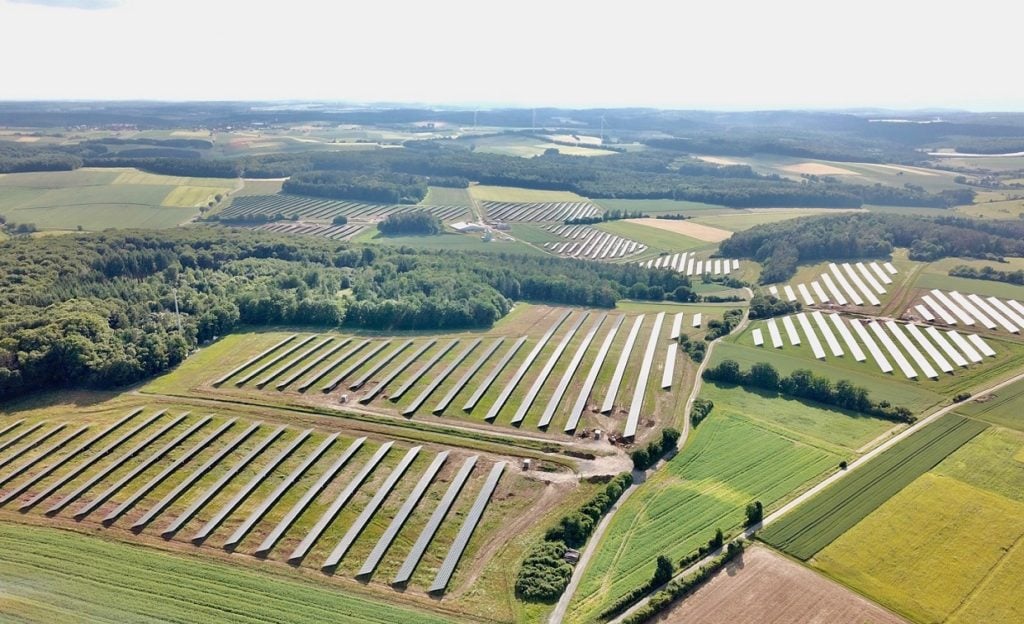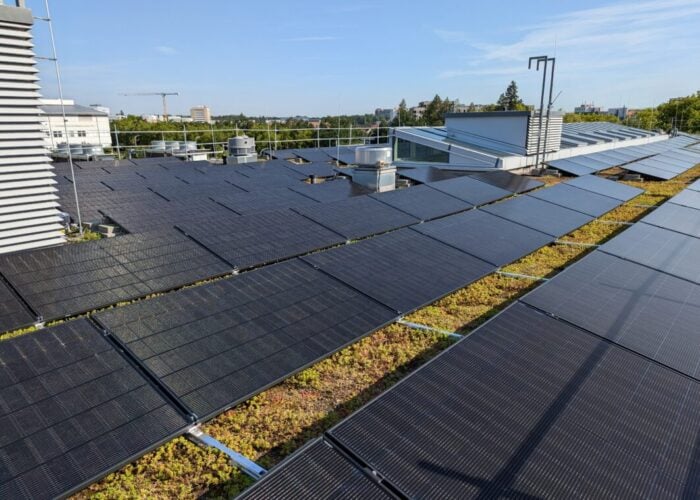
The European Commission (EC) has approved Germany’s modification to its renewables energy scheme, which is designed to help the country achieve its renewable targets.
The amended scheme in Germany’s Renewable Energy Act – dubbed Erneuerbare Energien Gesetz 2023 – will run until the end of 2026 and have an overall budget of €28 billion (US$29.8 billion), with the aim to reach an 80% share of electricity produced from renewables by 2030 and climate neutrality by 2045.
Unlock unlimited access for 12 whole months of distinctive global analysis
Photovoltaics International is now included.
- Regular insight and analysis of the industry’s biggest developments
- In-depth interviews with the industry’s leading figures
- Unlimited digital access to the PV Tech Power journal catalogue
- Unlimited digital access to the Photovoltaics International journal catalogue
- Access to more than 1,000 technical papers
- Discounts on Solar Media’s portfolio of events, in-person and virtual
Depending on the size of the installation it will take a different form, for smaller ones it will mostly be through feed-in-tariffs, while for others it will be through a market premium paid by the network operator to the producer on top of the market price for the electricity.
Germany’s rainbow coalition – comprising the centre-left Social Democrats (SPD), Greens and neoliberal Free Democrats (FDP) – released its plans earlier this year, which will see an accelerating growth of solar PV in the country, with the scheme working to reach the country’s 215GW target for installed solar capacity by 2030.
In the scheme Germany also aims to increase the number and volume of tenders – which will be held per technology – for rooftop and ground-mounted solar PV and will be modified to make them more competitive, limiting the risks of overcompensation and keeping costs to a minimum for consumers and taxpayers.
Another modification for tenders will be the introduction of a volume control mechanism for solar PV that will adjust the volumes tendered for each technology and avoid any undersubscription.
The assessment from the EC about the scheme valued it as “necessary and appropriate” to promote the growth of renewables, will contribute to a better grid stability in Germany and the aid is considered as “proportionate” due to it being limited to the minimum necessary.
Margrethe Vestager, executive vice-president in charge of competition policy at the EC, said: “The German Renewable Energy Act 2023 scheme will contribute to further decarbonise electricity production by increasing the share of renewable energy. At the same time, it will prevent overcompensating producers by phasing out support at times of negative prices.”
Starting from 1 January 2027, the support for renewable electricity production will be phased out at times of negative prices to prevent an overcompensation to producers.
Furthermore, once again Germany was the largest solar market in Europe in 2022 as it added 7.9GW of solar capacity and is set to enter the two-digit gigawatt market by 2024, according to trade body SolarPower Europe’s latest report.







